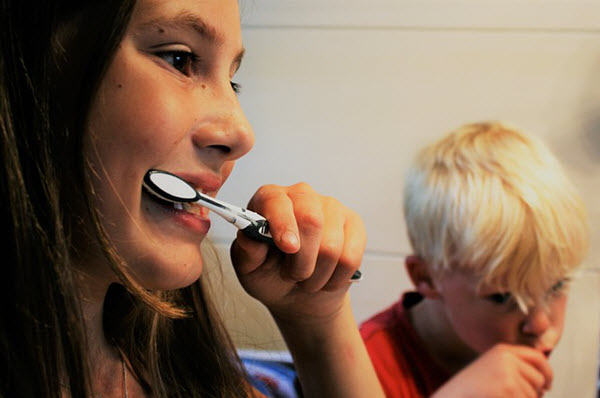Meeting and balancing the requirements of your special child can be very challenging at times. Urgent medical matters usually take preference over dental care. According to research, these children are more likely to suffer from dental problems as compared to children without any disabilities.
If your child has down syndrome, seizure disorders, learning disabilities or cerebral palsy, here’s a quick guide to proper dental care for children with special needs.
Dental Visits

Make sure not to skip any dental visits and find a dentist who understands children with special needs. You can learn a lot from them. If your child is having a hard time sitting still during his dental exam, you can plug in some earphones with music so they can be comfortable.
Daily Oral Healthcare at Home
Allow your child to brush his teeth where he is comfortable. The bathroom is not the only place where your child can brush his teeth. Make sure to provide enough light, steady and clean water, and a good sized mirror. Have a toothbrush, floss, and toothpaste ready, too.
Create a Positive Atmosphere
Your approach to oral care is important to your child. A positive attitude will make your child’s approach to dental care a lot more fun.
Explain and demonstrate all the steps to your child. Make sure to appreciate his effort the best way possible to ensure good behavior and consistent good practices.
Establish a Routine

Developing a consistent routine can help create a sense of familiarity. This can increase your child’s confidence in taking care of his oral health. You can set the routine according to what your dentist recommends. Maintain a record of what is effective and what is not so that you can refer it to the dentist on your child’s next visit.
Nutrition and Oral Health
Make sure to kick-start your child’s dental routine as soon as you get home from the hospital by wiping his gums with a wet gauze pad. Once your child’s teeth have erupted, make sure to brush his teeth twice a day with fluoride toothpaste. Ask your dentist when you can start using fluoride toothpaste and how much you can use.
Serving healthy and well-balanced meals with limited use of sugary or starchy foods can encourage healthy teeth and limit tooth decay. They can also encourage your child’s baby teeth to grow and develop properly.
Remember to brush your child’s teeth after eating. If that isn’t always possible, have him drink water or rinse out his mouth after eating to neutralize or wash away the acids.
Make Your Child Comfortable with Oral Care
Giving your child a lot of time to become familiar with his dentist’s clinic can help reduce his anxiety to a large extent. You should help your child find his comfort zone, help him explore the dental clinic, and understand the dental procedure as much as possible.
Timings Matter
Some people are able to cope better at different times of the day and the same goes for children.
Mornings are ideal as children still have a lot of energy. However, for children who are diabetic, make sure to ask his doctor as there are certain procedures that need special requirements. One good example is blood sugar.
Break Stereotypes and Work with What Your Child is Comfortable With
It is not necessary for your child to get his dental check-up done in a dental chair as has been stereotyped for adults. He can have his check-up done wherever he feels comfortable. He can get his teeth and mouth checked whether he’s in his wheelchair or sitting on your lap.
I hope that these 8 oral health care tips help your children maintain good oral health and experience healthy and happy lives without being plagued by dental problems.
The post Dental Care for Children With Special Needs appeared first on Dumb Little Man.
from
https://www.dumblittleman.com/dental-care-for-children-with-special-needs/

No comments:
Post a Comment